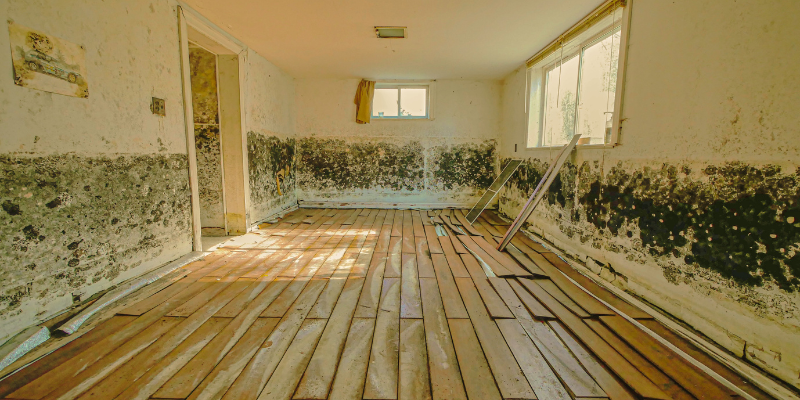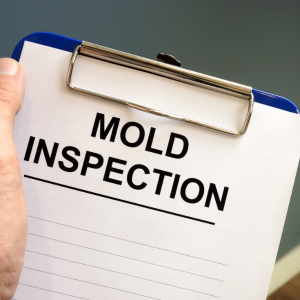
Understanding North Carolina’s Real Estate Market Trends
If you want to sell a moldy house in Charlotte, NC, you need to know how the North Carolina real estate market works. Charlotte’s housing market has grown a lot, with more people wanting to buy homes and property prices going up.
But if you want to sell a house that has mold problems, you need to plan ahead to make the most of these trends. In Charlotte, buyers are often looking for homes that are a good deal and don’t need a lot of work. This is why it’s important for sellers to know what their competitors are doing.
Sellers must remain informed about local market conditions, such as average home prices and the time houses spend on the market, to price their property appropriately. Knowing how things change with the seasons can also help you decide when to put your house on the market so that you can get serious buyers quickly.
Understanding these real estate dynamics allows sellers to more effectively position mold-affected homes within Charlotte’s competitive and selective market. Zack Buys Houses is here to help, contact us today to learn how we can support you through the process.
The Impact of Climate on Real Estate Values in the Carolinas
The weather in the Carolinas, including Charlotte, North Carolina, has a big effect on home prices, especially when it comes to homes that have mold. That’s because the warm temperatures and high humidity of the humid subtropical environment make it perfect for mold to grow, which can lower property values.
Charlotte homebuyers are becoming more aware of these environmental problems, and they may be hesitant to buy homes that are likely to have mold problems. Because people are more aware of the problem, there needs to be a good way to sell homes that have mold.
To keep or raise the market value of their home, sellers must take action to deal with mold issues by conducting thorough checks and removing the mold. Also, telling potential buyers about the steps that are taken to reduce the risk of mold can help ease their worries and make the deal go more smoothly.
Understanding the local climate’s influence on real estate dynamics is essential when selling homes impacted by mold in this region.
How Economic Factors Affect Housing Prices Across North Carolina
North Carolina’s home prices are heavily affected by the economy, even in cities like Charlotte. The local economy’s strength, which is driven by businesses like healthcare, banking, and technology, has a big effect on how the housing market works.
In Charlotte, where mold-affected houses may pose additional challenges for sellers, understanding these economic elements becomes essential. Employment rates and income levels directly impact buyers’ purchasing power, affecting demand for both pristine and distressed properties.
Interest rates set by the Federal Reserve can also change how much a mortgage costs, which can affect the decisions of possible buyers and, in turn, property values. Inflation also plays a role because it changes the prices of building and maintaining homes, which can have an effect on how much they are worth overall.
Furthermore, population growth in urban centers like Charlotte fuels housing demand but also strains supply chains already dealing with issues like mold remediation costs. Sellers must navigate these economic conditions to strategically price their mold-affected homes competitively while considering broader statewide trends that affect local real estate markets.
Navigating Property Taxes in North Carolina: a Comprehensive Guide
Getting property taxes in order is an important part of selling a moldy house in Charlotte, NC, and homeowners can benefit from learning how North Carolina’s tax system works. In North Carolina, property taxes are based on how much the home is worth at the time of the assessment.
If you want to sell a house that has mold in it, you should make sure that the price you set for it accurately reflects its current state. Homeowners should work closely with their local tax inspectors to see if they can change the tax assessment if the mold problem has a big effect on the value of their home.
Additionally, sellers need to be aware of any outstanding property tax obligations before finalizing a sale. Paying off or negotiating these taxes can streamline the closing process and prevent potential legal issues.
Also, buyers should talk to real estate professionals who know Charlotte’s housing market and North Carolina’s tax rules so they can get through these complicated situations easily. Knowing about exemptions and possible discounts for home improvements or cleaning up the environment can also help with the costs of the sale.
Essential Tips for First-time Homebuyers in North Carolina
If you want to sell a house in Charlotte, NC that has mold in it, you need to use successful strategies that are specifically made for this real estate situation. People who are buying their first home in North Carolina should know that being honest is important. Telling potential buyers about the mold problem right away builds trust and is the law.
Addressing mold problems through professional remediation not only enhances the property’s appeal but also safeguards its market value. Putting the focus on recent updates and repairs can take the attention off of problems from the past and show off the home’s potential.
It is important to set a fair price for the property, taking into account both the local market trends and the costs of removing the mold. Hiring an experienced real estate professional who knows how to handle these kinds of situations can be very helpful. They can give you advice and help you negotiate better terms, which will make the whole process go more smoothly.
Additionally, offering incentives like covering closing costs or providing warranties for future work may attract hesitant buyers. Thoughtfully using these tactics will help sellers get their moldy house sold in Charlotte’s busy real estate market.
Financing Options for Homebuyers and Sellers in North Carolina
Both buyers and sellers of mold-damaged homes in Charlotte, NC need to know about their financing choices before they put the house on the market. Mold problems can make deals more difficult in North Carolina, but there are a number of ways to get financing that can make things go more smoothly.
Sellers might consider offering seller financing to attract buyers who may struggle to secure traditional mortgages due to the property’s condition. This choice lets buyers pay straight to the seller over time, which makes it a good option for people who are having problems with mold.
Additionally, FHA 203(k) loans are a viable solution for buyers interested in purchasing a mold-affected home in need of renovation. These loans provide funds not only for purchasing the property but also for necessary repairs and improvements, including mold remediation.
Conventional repair loans are another choice for people who want to buy homes that need a lot of work. Sellers can find it helpful to work with real estate professionals who have experience with distressed properties. With these financial options, these real estate professionals can help sellers find buyers who are ready to make repairs on their homes.
If you know about these money-saving tips, you can sell or buy a moldy home with confidence, knowing that you are minimizing risk.
Legal Considerations When Selling a Home in North Carolina
If you want to sell a house in Charlotte, North Carolina that has mold in it, you need to know the legal issues that could affect the sale. North Carolina law says that sellers must tell buyers about any problems they know about with the property, such as mold issues.
Not giving correct information can result in legal issues and could even make the sale null and void. The state requires sellers to fill out the Residential Property Disclosure Statement completely and truthfully.
It may be beneficial for sellers to obtain a professional inspection or mold assessment report to accurately document the condition of the home. Additionally, addressing mold remediation before listing the house can help alleviate buyer concerns and facilitate a smoother transaction.
Working with a real estate professional who understands North Carolina’s disclosure laws can help you navigate these legal requirements with confidence. Being upfront about issues like mold doesn’t just protect you legally, it also shows potential buyers that you’re honest and trustworthy. This transparency can make a big difference when you’re trying to sell your house fast for cash in North Carolina.
Identifying Red Flags During a Home Inspection in North Carolina

When selling a mold-affected house in Charlotte, NC, it is crucial to identify red flags during a home inspection to ensure a smooth transaction. In North Carolina, testers will focus on places that get a lot of moisture, like basements, bathrooms, and attics, where mold often grows.
In the walls and ceilings, they will look for damage or marks that could be from water leaks, either in the past or the present. People who check out the HVAC system may find mold or musty smells, which could mean that the air quality is bad.
It’s essential to pay attention to ventilation issues, as inadequate airflow can exacerbate mold problems. Additionally, they might use moisture meters and thermal imaging cameras to detect hidden moisture behind walls or under floors.
Understanding these potential red flags can help sellers address issues proactively before listing their property in the competitive Charlotte real estate market.
Understanding the Closing Process: What Sellers Need to Know
Understanding the closing process is very important for people in Charlotte, NC who want to sell a house that has mold in it. During this time, sellers should know that being open about mold problems is very important.
Disclosing known mold problems upfront can prevent legal complications and build trust with potential buyers. Engaging a professional home inspector to assess and document the extent of mold damage can provide credibility and assurance to prospective purchasers.
Also, buyers should have a clear plan for how to handle remediation costs. For example, they could negotiate these costs into the sale terms or change the asking price to account for them. Working with a real estate professional with a lot of experience who knows how the Charlotte market works can help you deal with buyer worries and follow North Carolina’s disclosure laws.
Also, sellers should be ready for extra steps that need to be taken before the closing can happen. For example, they may have to handle buyer checks and appraisals that include mold issues. By knowing these important facts, buyers of mold-affected homes in Charlotte can make the process go more smoothly and avoid most of the problems that might come up.
Effective Strategies for Selling a House with Mold in Charlotte, Nc
If you want to sell a house in Charlotte, NC that has mold on it, you need to carefully plan and carry out your strategy. First, homeowners should pay for a full mold inspection by a qualified professional to find out how bad the problem is.
Addressing the mold problem is crucial, so hiring experienced mold remediation specialists can help eliminate existing mold and prevent future growth. Disclosing any known mold issues to potential buyers is not only ethical but also legally necessary in North Carolina.
Getting a “clean bill of health” from an inspector after repair can help buyers feel more confident. After taking care of mold problems, staging the house well can bring out its best features and draw attention away from problems that were there before.
By setting a competitive price for the house while taking into account the cost of repairs, you can get serious buyers who see the worth, even if the house has had problems in the past. Working with a real estate professional in Charlotte who knows how to sell homes that have been damaged by mold can be very helpful during this process.
Overcoming Common Challenges Faced by Sellers with Mold Issues
Selling a Charlotte, NC home that has mold on it comes with its own set of problems that need to be solved in a planned way. One of the biggest problems is calming potential buyers’ worries about the health risks of being around mold.
To calm people’s worries, sellers should pay for a professional mold check and removal service to make sure the property meets safety standards. Giving proof that mold removal has been finished can greatly increase the buyer’s confidence.
Additionally, understanding local real estate market trends and working with an experienced real estate professional familiar with selling homes with mold issues in Charlotte can help in setting a realistic price. Proper disclosure about past mold problems, along with demonstrating proactive measures taken to prevent future occurrences, is essential for maintaining transparency and trust during negotiations.
Stressing the good things about living in Charlotte, like its active community and growing economy, can also help counteract any negative thoughts about mold issues.
The Benefits of Renovations Before Selling Your Home in Nc
Remodeling a Charlotte, NC, home that has mold before selling it has many benefits that can greatly increase its value and charm. The indoor air quality can be improved and the property can meet health and safety standards if people get rid of mold problems professionally and make smart updates.
Adding new flooring, updating the kitchen and bathroom, and improving the curb appeal with new greenery are all renovations that can bring in more buyers. In Charlotte’s competitive real estate market, showing a home that is ready to move into gives buyers an edge over homes that need a lot of work.
Furthermore, investing in energy-efficient upgrades like modern HVAC systems or improved insulation not only appeals to environmentally conscious buyers but also reduces long-term utility costs, making the home more attractive. These enhancements often lead to a higher selling price and faster sales process by creating a positive first impression for prospective buyers touring homes in North Carolina’s vibrant housing market.
How to Prepare Your Home for Sale During Peak Seasons in Nc
Preparing your mold-affected house for sale during the peak seasons in Charlotte, NC, requires strategic planning to attract potential buyers. Start by addressing mold issues upfront through professional remediation to ensure your home is safe and appealing.
Highlighting a comprehensive inspection report that confirms the resolution of mold problems can instill confidence in buyers. Enhance your home’s curb appeal with fresh landscaping, a clean exterior, and inviting entryways to make a strong first impression.
Inside, focus on deep cleaning and decluttering to showcase your home’s best features. Consider repainting rooms in neutral colors to create a fresh atmosphere while ensuring any lingering musty odors are eliminated.
Staging can be particularly effective; arrange furniture to emphasize spaciousness and functionality, appealing to prospective buyers’ desires for comfort and practicality. Utilize high-quality photographs taken during bright daylight hours that capture the essence of your home’s charm for online listings.
Engaging a local real estate professional who understands the Charlotte market dynamics can provide valuable insights into pricing strategies and buyer preferences during peak seasons in North Carolina.
Staging Your Home for Success: Attracting Buyers in Charlotte’s Competitive Market
Staging your mold-affected house effectively can make a significant difference in attracting potential buyers in Charlotte’s competitive real estate market. Begin by addressing visible mold issues, as this is crucial for creating a welcoming atmosphere.
Hire professional cleaners to ensure that every trace of mold is removed, and consider repainting affected areas with mold-resistant paint to prevent future occurrences. Focus on enhancing your home’s curb appeal by maintaining the lawn, trimming shrubs, and adding fresh flowers.
Inside, arrange furniture to highlight spaciousness and natural light, which are highly sought-after features among Charlotte buyers. Use neutral colors and modern decor to create an inviting and versatile space that appeals to a wide range of tastes.
Highlight unique aspects of your home through strategic placement of accent pieces or artwork that draw attention away from any previous issues. Good lighting can transform the ambiance, so replace outdated fixtures with contemporary ones and open curtains to maximize sunlight.
By thoughtfully staging your home, you can mitigate concerns about past mold problems and showcase its full potential in Charlotte’s bustling housing market.
Marketing Your Property Effectively to Potential Buyers Online
When marketing a mold-affected house in Charlotte, NC, it’s crucial to leverage online platforms effectively to reach potential buyers. Start by creating a compelling property listing on popular real estate websites such as Zillow, Realtor.com, and Redfin.
High-quality photos are essential; consider hiring a professional photographer who can highlight the property’s best features while minimizing visible mold issues. Include a detailed description that transparently addresses the mold situation and any remediation efforts undertaken, as honesty builds trust with prospective buyers.
Utilize social media channels like Facebook and Instagram to target local audiences through paid ads or organic posts showcasing unique aspects of the home and its location in Charlotte. Virtual tours or video walkthroughs can also engage remote buyers, providing them with an immersive experience that highlights both the property’s potential and any renovations made to address mold concerns.
Engage with interested parties promptly through direct messaging or email to answer questions and provide additional information about how you’ve managed the mold problem.
Leveraging Technology to Expedite Your House Sale in Charlotte, Nc

Leveraging technology can significantly accelerate the process of selling a mold-affected house in Charlotte, NC. Utilizing high-quality virtual tours and professional photography allows potential buyers to view the property remotely, highlighting its positive aspects while minimizing concerns over mold issues.
Online real estate platforms with targeted advertising can precisely reach buyers interested in fixer-upper opportunities or investment properties, increasing your chances of a quick sale. Additionally, using data analytics tools helps in pricing the property competitively based on local market trends in Charlotte.
Engaging with social media channels further broadens your reach, connecting you directly with interested parties and facilitating live Q&A sessions to address any mold-related queries. Collaborating with an experienced real estate professional who uses cutting-edge digital marketing techniques ensures that your home receives maximum exposure, leveraging technology to overcome the challenges posed by mold and expedite the sale process effectively.
Exploring the Best Neighborhoods to Invest in Across Charlotte, Nc
When selling a mold-affected house in Charlotte, NC, it’s essential to understand the dynamics of its diverse neighborhoods to effectively market your property. Areas like Dilworth and South End are highly sought after due to their vibrant communities and proximity to downtown amenities, making them attractive to potential buyers despite any mold issues.
Plaza Midwood and NoDa are known for their eclectic charm and artistic vibe, drawing in younger buyers looking for unique homes that offer character and potential investment value. Ballantyne offers a suburban feel with excellent schools, which can be a significant selling point for families even if the home requires remediation work.
By highlighting the strengths of these neighborhoods, such as access to parks, thriving local businesses, and transportation links, you can emphasize the long-term benefits of investing in real estate within these areas. Tailoring your marketing approach by focusing on neighborhood highlights can help mitigate concerns about mold damage and attract buyers who see beyond immediate repairs to the property’s future potential.
Sustainable and Green Homes: a Growing Trend in Charlotte, Nc Real Estate
In Charlotte, NC, the real estate market is increasingly embracing sustainable and green homes as a response to rising environmental awareness and consumer demand for eco-friendly living spaces. Homebuyers in Charlotte are showing a marked preference for properties that incorporate energy-efficient features, such as solar panels, high-performance insulation, and Energy Star-rated appliances.
These eco-conscious upgrades not only reduce utility costs but also enhance the overall appeal of a property, making it more attractive to potential buyers despite challenges like mold issues. For sellers of mold-affected houses in Charlotte, integrating sustainable practices can be an effective strategy to improve marketability.
Implementing environmentally friendly solutions like non-toxic mold remediation techniques and using sustainable building materials can alleviate health concerns while aligning with the growing trend towards green real estate. Additionally, promoting these features effectively highlights the home’s alignment with modern standards of sustainability and energy efficiency, positioning it competitively within the dynamic Charlotte housing market.
The Future of Real Estate Investment Opportunities in the Carolinas
The future of real estate investment opportunities in the Carolinas, particularly in cities like Charlotte, NC, is evolving rapidly as investors adapt to challenges such as mold-affected properties. As demand for housing continues to grow, savvy investors are identifying unique strategies to turn potential liabilities into profitable ventures.
In Charlotte’s competitive market, addressing mold issues effectively can significantly enhance a property’s value and appeal. Utilizing advanced mold remediation techniques not only ensures compliance with health and safety regulations but also reassures prospective buyers of their investment’s long-term viability.
Additionally, partnering with local experts who understand the intricacies of the Carolinas’ climate and its impact on property conditions can provide investors with a competitive edge. The region’s dynamic economy and population growth further underscore the potential for substantial returns on investments made in properly restored homes.
By focusing on sustainable renovation practices and leveraging the latest technology in property management, investors can transform mold-affected houses into lucrative assets within Charlotte’s thriving real estate market.
Does North Carolina Have Mold Laws?
If you’re selling a house in Charlotte, NC that has mold in it, you need to know the laws about mold exposure. North Carolina does not have special mold laws, but state law says that sellers must follow general real estate disclosure rules.
This means that while there isn’t a specific statute addressing mold, sellers in North Carolina are obligated to disclose any known material defects affecting the property, which includes mold issues. Understanding these regulations is vital for anyone looking to sell a mold-affected home successfully.
According to state disclosure rules, sellers can avoid legal problems and build trust with potential buyers by being honest about any mold issues. Additionally, sellers should get a professional mold check done to make sure that all problems are found and properly recorded before putting the house on the Charlotte market.
Should I Sell My House If It Has Mold?
If you live in Charlotte, NC and are thinking about selling a house that has mold in it, you should carefully weigh the pros and cons. Even though it can be hard to sell a house that has mold in it, there are things that can be done to make the process go more smoothly.
That being said, it’s important to know how bad the mold problem really is. Hiring a professional to look at it and write down what they find can help. Mold remediation can help your home look better and might even raise its market value if you have minor mold problems.
For more extensive problems, consider selling “as-is” to investors specializing in distressed properties. Marketing your house transparently by disclosing mold-related information upfront builds trust with potential buyers.
Even though there is mold, pointing out Charlotte’s strong real estate market and attractive location can also get people interested. Ultimately, talking to an experienced real estate professional who knows the local rules and what buyers are looking for can help you sell your moldy home quickly and comfortably.
Does Mold Affect Home Appraisals?

Mold can significantly impact home appraisals, especially in a market like Charlotte, NC, where buyers are keen on property condition. When selling a mold-affected house, it is crucial to understand how mold issues may affect the appraisal process.
Appraisers are trained to identify potential health hazards and structural concerns, and the presence of mold can raise red flags that might lower a home’s value. Mold not only poses health risks but also indicates possible underlying problems such as water damage or poor ventilation.
Before an evaluation, homeowners should think about hiring a professional mold removal service to lessen these effects. Dealing with mold problems before they get worse can raise the property’s value and lead to a better evaluation.
In Charlotte’s competitive real estate market, presenting a clean bill of health for your home by ensuring it’s free from mold and related damage can be an effective strategy for maximizing its appraised value and sale price.
Is Mold in a House a Deal Breaker?
When considering selling a mold-affected house in Charlotte, NC, many homeowners worry if mold is a deal breaker for potential buyers. While mold can be a significant concern, it doesn’t necessarily have to derail the sale of your property.
Understanding how to effectively address and remediate mold issues is crucial. First, it’s important to conduct a thorough inspection by certified professionals to assess the extent of the mold problem.
Once identified, proper remediation strategies must be implemented to eliminate mold and prevent future growth. Transparency with potential buyers about the actions taken to resolve the issue can build trust and confidence.
Highlighting improvements like upgraded ventilation systems or moisture control solutions can go a long way in reassuring potential buyers that proactive steps have been taken. Even if mold has been an issue in the past, pricing the home appropriately and working with real estate experts who understand how to sell homes in Charlotte with these challenges can make a big difference. In fact, we buy houses in Charlotte in any condition, so even homes with mold concerns can still attract serious offers and become opportunities instead of deal breakers.
Helpful North Carolina Blog Articles
- Selling Your Investment Property in North Carolina
- Selling Your North Carolina Home With An Existing Mortgage
- How To Successfully Sell A House With Tenants In North Carolina
- Appraisal Repairs in NC: How They Impact Your Home Sale
- Documents Required to Sell a House in North Carolina
- Closing Costs Without a Realtor in North Carolina
- Filing A Quitclaim Deed For Real Estate In North Carolina
- Real Estate Division In North Carolina Divorce Cases
- Selling Your North Carolina Home Without A Real Estate Agent
- Who Pays the HOA Fees at Closing in North Carolina
- How to Sell a Condemned House in North Carolina
- How to Sell a House As-Is in North Carolina
- Does a Seller Pay Closing Costs in North Carolina
- Can You Sell a House That Failed Inspection in North Carolina
- Lease Options to Sell Your North Carolina Home

